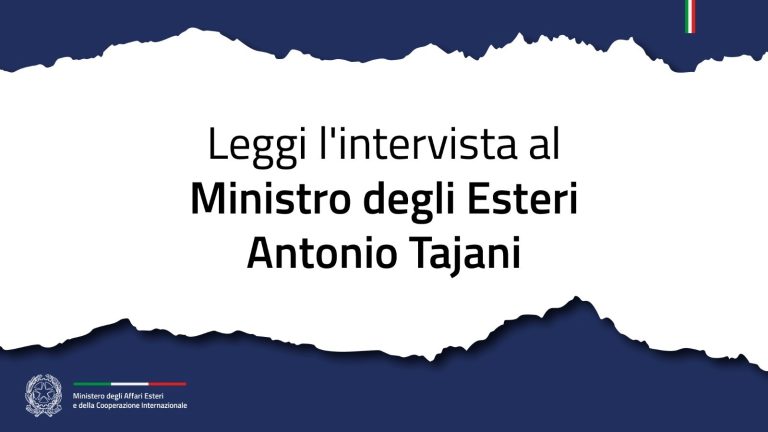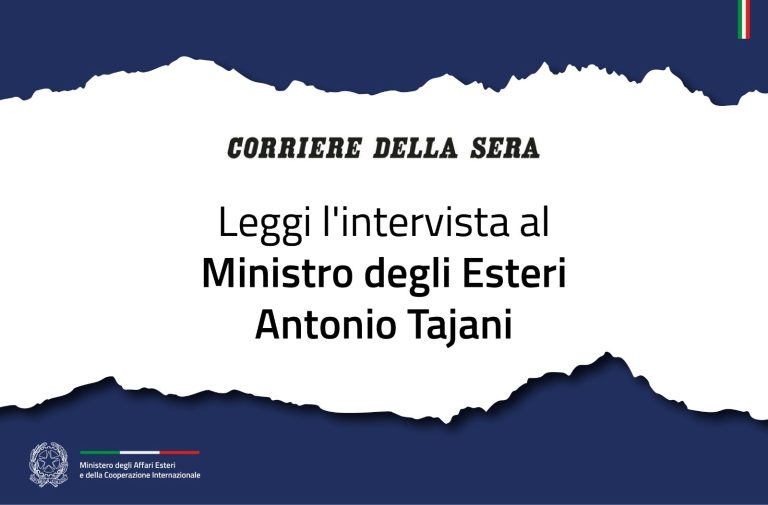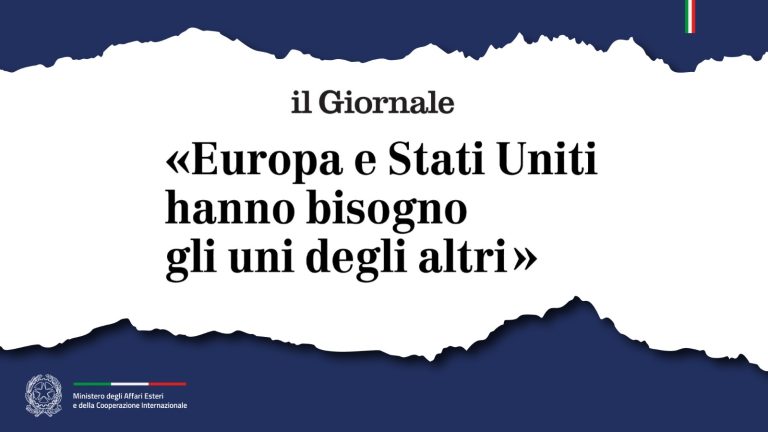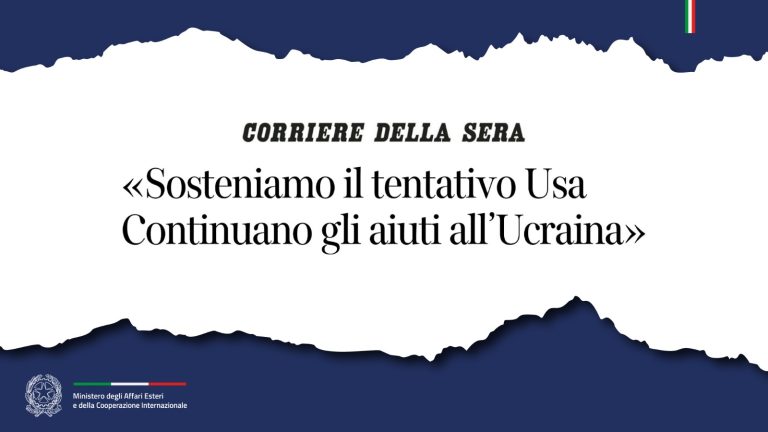Minister Antonio Tajani, there is tension with magistrates, with NGOs, with Berlin: the migrant issue is increasingly central and divisive. Do you feel besieged?
“It is not a matter of feeling besieged, but of finding solutions to a European, if not global, problem – migration – which requires concrete answers. The phenomenon is so vast that Europe must be involved, but also the United Nations, and all the UN’s international agencies. It is also a strategic issue: if Europe wavers, stands still and does not have the capacity to be a positive and proactive player in Africa, others like Russia and China will step in. Indeed, they are already doing so. And we would lose any role in Africa”.
A Mattei plan would be necessary…
“And indeed the plan will be implemented, but it’s not enough. The Mattei plan will serve the Italian side. What we need here is a real European Marshall Plan, having significant resources and involving a wide range of players, with the UN playing an important role. Migration has a number of causes, from political instability to climate change to a lack of economic development and a delay in creating opportunities for young Africans. Either we all act together, or the problem will not be solved and migration will continue”.
What is the strategy then?
“We already have a European strategy that includes strong action against human traffickers. Then we need to work to obtain orderly and safe access: in four years Italy will give legal access to almost half a million regular migrants, those needed by our economy, while irregular migrants are a problem. We are working with a number of African countries, such as Côte d’Ivoire and Guinea, to have them take back their compatriots who have arrived in Italy irregularly. We are working with Tunisia with a broad agreement, we are envisaging agreements whereby African countries can process locally the raw materials they have and thus create jobs. We need a comprehensive strategy, not a ploy, and Europe must realise this”.
Will a common European position on migration be found at the Granada summit?
“I hope so, and that national electoral interests will not prevail, as these would then backfire on the countries that did not want to find common ground”.
In Granada there will be a lot of talk about the enlargement of the Union, including to Ukraine: when will it be possible?
“First of all, we have to think about the Balkan countries, which have been candidates for the longest time and whose entry into the Union could help overcome tensions that have not yet subsided: EU Council President Charles Michel mentioned that this could possibly take place in 2030, and I believe it could be brought forward. And then there are Moldova and Ukraine, while Georgia is not yet a candidate. Becoming a candidate is already an important recognition. It is necessary to follow the process that all countries had to go through to join the Union. However, I told Zelensky that we are willing to help Ukraine in any way they need. For example, regarding corruption, I suggested that they have their police force trained by our Guardia di Finanza. Of course, it is unthinkable to have a country join the EU while at war; however, the process for joining the Union usually takes around a decade and the war will be over by then”.
Speaking of Ukraine: is there a risk that the country will gradually drift away from the EU? Today Slovakia, tomorrow some other country, with the US busy campaigning and prone to delaying aid, like what is happening these days?
“I don’t see this risk. On Monday, the foreign ministers of the EU countries were in Kyiv precisely to show their solidarity with Ukraine. Also, Biden himself reassured the allies. We must, of course, work towards peace, but in a way that guarantees Ukraine’s independence, and that’s what military aid is for. We must work on two fronts: to stand by Kyiv by giving it what it needs to defend itself against Russia’s aggression and at the same time to encourage every dialogue process, from the grain talks promoted by Türkiye to the Pope’s talks. We must press China to try harder to convince Russia to end the war. We are open to every negotiation effort for peace, but on one condition: that it be a just peace”.
Returning to Italy to talk about a manoeuvre that promises to be difficult given the scarcity of resources. What are your priorities?
“We must put more money in people’s pockets. This manoeuvre is objectively difficult. My priorities are the continuation of the tax wedge cut, interventions on wages such as the detaxation of overtime hours, maybe thirteenth month bonuses. Then public contacts, prioritising those working in healthcare, law enforcement and the armed forces. Next, we have to intervene on pensions, we’ll see how. Furthermore, we must go ahead with privatisations, also to find resources. Everything that can be done this year will be done, then we will have another four years to progress further down this road”.





